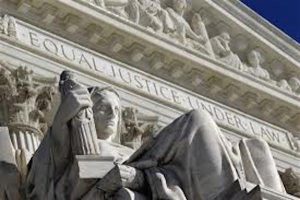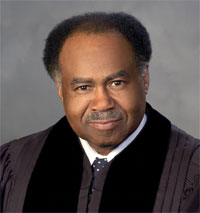
Recently, there have been a couple of criminal cases heard by the Georgia Supreme Court which have involved the trial judge’s inherent duty to be the final arbiter of fairness and justice in the courtroom. Sometime this is referred to as the “13th Juror,” because the trial judge sometimes must base her or his ultimate decision on the facts, testimony and documentary evidence presented at trial…things an appellate court would not be in a position to know. A recent discussion about the notion of the trial judge as 13th juror came in an appeal of a criminal case, State v. Hamilton, 832 S.E.2d 836 (Ga. Sup. Ct. September 3, 2019) in which the Georgia Supreme Court heard oral argument on the issue of whether the trial judge was authorized to toss out three counts of assault when that the jury had convicted the defendant on, in the judge’s opinion, there was no way factually or legally for those three counts to be proven beyond a reasonable doubt. The Court affirmed the trial court’s granting of a new trial. “Having reviewed the entire record, and considering that the trial court was authorized, as the thirteenth juror, to discount Taylor’s and Hewatt’s testimony and to credit Hamilton’s story, and bearing in mind the standard of review set forth in OCGA § 5-5-50, we cannot say that the trial court’s conclusion was an abuse of its substantial discretion to grant Hamilton a new trial. See Hamilton, 299 Ga. at 670-671, 791 S.E.2d 51 (“An appellate court will not disturb the first grant of a new trial based on the general grounds unless the trial court abused its discretion in granting it and the law and the facts demand the verdict rendered.”).”
In another case recently argued before the Georgia Supreme Court, the Court told the Fulton County D.A., who was appealing a trial judge’s granting of a new trial, that the D.A. was “wasting the Court’s time” with such an appeal when the trial judge clearly has the power, right and, arguably, the duty, to grant a new trial. In that case, State v. Beard, NO. S19A0535 (Ga. Sup. Ct. October 31, 2019) quoted below, the Supreme Court’s opinion called the D.A.’s position “bizarre.” “Contrary to the State’s bizarre argument, the jury’s verdict was not demanded by the “great physical laws of the universe.” (“An appellate court will not disturb the first grant of a new trial based on the general grounds unless the trial court abused its discretion in granting it and the law and the facts demand the verdict rendered.”).’
State v. Beard, S19A0535, 2019 WL 5656338, at 4 (Ga. Oct. 31, 2019). Since then, the Fulton County D.A. dismissed its appeal and has vowed to take his argument to the Georgia Legislature in an attempt to get legislation passed that will eliminate this inherent duty and power of the trial judge.
 One important aspect of many personal injury cases is the duty of care that the defendant owed at the time of the plaintiff’s injury. That is, how responsible is the property owner or manager for the injuries suffered by the victim? To help answer this question, Georgia courts generally classify plaintiffs into one of three categories: invitee, licensee, and trespasser.
One important aspect of many personal injury cases is the duty of care that the defendant owed at the time of the plaintiff’s injury. That is, how responsible is the property owner or manager for the injuries suffered by the victim? To help answer this question, Georgia courts generally classify plaintiffs into one of three categories: invitee, licensee, and trespasser.  Atlanta Injury Lawyer Blog
Atlanta Injury Lawyer Blog























